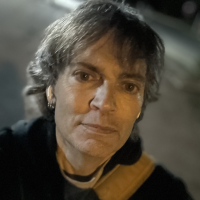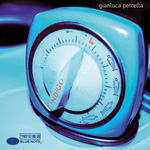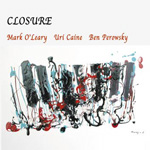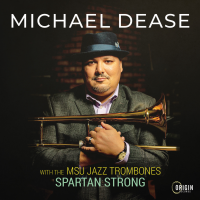Home » Jazz Articles » Interview » Marc Ribot: That's the Way I View It From New York
Marc Ribot: That's the Way I View It From New York
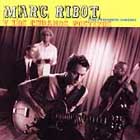 MR: Yes. They're in love with it, they've seen it that way more than you've seen anything, and it feels as natural to them as the air. At that point, they call the composer. But nothing you can do is ever going to live up to the familiarity they've gotten with the temp score. So they usually drive the composer completely crazy, saying, "make it be like that. That's why film, nine times out of ten, can be a frustrating experience. It's not because of dealing with people who aren't experts. I respect the judgment of my friends who are not musicians. There's just a conflict almost built into this process between the temp score and what you're writing. And built into this is usually a lack of trust. And there was not a lack of trust between Bernard Herrmann and Alfred Hitchcock. Hitchcock didn't look over his shoulder at every scene as he was working and say, "it's not as good as that piece we had on the temp score. He didn't do that! And as a consequence, he got great scores. But that's not how it usually sorts out nowadays. There are very few directors who have both that relation with the composer and the restraint to not try to control every aspect of the process.
MR: Yes. They're in love with it, they've seen it that way more than you've seen anything, and it feels as natural to them as the air. At that point, they call the composer. But nothing you can do is ever going to live up to the familiarity they've gotten with the temp score. So they usually drive the composer completely crazy, saying, "make it be like that. That's why film, nine times out of ten, can be a frustrating experience. It's not because of dealing with people who aren't experts. I respect the judgment of my friends who are not musicians. There's just a conflict almost built into this process between the temp score and what you're writing. And built into this is usually a lack of trust. And there was not a lack of trust between Bernard Herrmann and Alfred Hitchcock. Hitchcock didn't look over his shoulder at every scene as he was working and say, "it's not as good as that piece we had on the temp score. He didn't do that! And as a consequence, he got great scores. But that's not how it usually sorts out nowadays. There are very few directors who have both that relation with the composer and the restraint to not try to control every aspect of the process.AAJ: The last thing I'll say about your own soundtrack albums is that I like how you mix together the pieces from individual films on the CDs so they're not grouped together; you sort of shuffle the deck. It should make the records more incoherent, but on Shoe String Symphonettes and Soundtracks II, it works.
MR: Sequencing a record is the hardest part. You can take a great record and screw it up by screwing up the sequence. And you can't predict it in advance. I would say it's not even until the stuff is mixed that you can really say, "oh, this is going to sound good after that. It's hard to do it in advance. And you can create a little narrative there, so you can really change the meaning of the record in the sequencing.
AAJ: You did a CD called Saints for Atlantic Records that came out in 2001. This is a set of solo guitar versions of various people's tunes, including your own—Ayler, Zorn, John Lurie, the Beatles. I know you still do live solo gigs.
MR: I've been playing solo since I was eleven years old. I like to do it. The solo stuff for me is in the process of changing. I've started to do more of it on acoustic guitar. It started out as—well, you used the word "dialectic before. I used to juxtapose standards with noise pieces, new music pieces. It started off because I recorded The Book of Heads (1995, Avant) with John Zorn. So I started off trying to juxtapose that kind of very sonic, noise-oriented stuff with standards. The intent was to have the aesthetic of each rub off and bleed into the other, not to make it pastiche, but to make it one thing. And sometimes I got there and sometimes I didn't. I think the person who got there was Derek Bailey. And towards the end of his life, he recorded a record on Tzadik Records called Ballads that, to me, is the most seamless combination of free improvisation and standards that I've ever heard. I have to confess I wrote the liner notes to it, but that's why I wrote the liner notes; I was amazed.
AAJ: That cover you do of "Go Down Moses that's on your Saints album is a favorite of mine—I've always thought of it as Derek Bailey meets Tommy Johnson. I also really like your take on Ayler's "Holy Holy Holy on this CD. Best of all is "Somewhere, which is a favorite pop tune of mine in general—it's quite the deconstruction. There are lot of changing effects on the guitar there and a lot of stereo panning—was that done live with separate amps or pickups or after the fact during mixing?
MR: That was done live. Mostly live. You know, it's not really that complicated. What it is is that I used this thing on a lot of those pieces where it's miked directly. Electric guitar, but it's also miked directly. And the things are panned differently. So when I put up my volume pedal and you're just hearing the acoustic sound—wait, I can't even remember—was that an electric guitar?
AAJ: Yeah.
 MR: That would make sense. I don't remember if I was using other effects, but the main effect is using amplified and acoustic and changing the ratio between the two.
MR: That would make sense. I don't remember if I was using other effects, but the main effect is using amplified and acoustic and changing the ratio between the two.AAJ: Is a record like Saints indicative of the sorts of solo performances you do now?
MR: That's indicative of the kind of solo performances I have done for the last eight years. I'm in the process of changing, and I'm working with a bunch of pieces that I've written myself that are kind of setups for improvising. I want to publish them as a written exercise book. They're called Exercises in Futility and they teach guitarists how to play with and in spite of futility.
AAJ: The Well-Tempered Guitar?
MR: Yeah. Something like that. The Mean-Tempered Guitar.
AAJ: I know you have a new band, Ceramic Dog. I haven't heard a note. Tell me about it.
MR: It's a rock band. I decided to have a rock band because I did all these projects in which I've kind of rewritten stuff by [Cuban bandleader] Arsenio Rodriguez and other things as punk rock. I thought, why not just have a punk rock band? So I'm trying that. And it's really fun. I have two great musicians—Shazad Ismailly on bass and Ches Smith on drums. Ches is a West Coast guy. They both have a different set of influences than me. Ches comes out of playing in post-punk rock bands, but he's also a great musician. He's not a naïf; he knows how to play. Shazad has a lot of experience in that, but also in electronica, ambient sounds. They're bringing things into the mix that frankly, I wouldn't know how to bring into the mix. So it's good.
AAJ: Do you write the tunes?
MR: I've been doing most of the writing, yeah. The group is actually a band—a real, collective group. We laughing divvy up the bread. I mean, usually when it's not a collective group, I get less [laughing]. It's an actual band where we rehearse even if we don't have gigs and everybody's into it.
AAJ: Are you going to record?
MR: I sure hope so. The label scene is dismal!
AAJ: It's very bad for rock. I just think it's a bad time to be in a rock band, in terms of recording.
MR: What's up with that? Aren't we supposed to be in the middle of the new utopia?
AAJ: I do think there are also less decent rock bands than there used to be.
MR: There's great bands! There's great things all over. The only thing you can't do is get paid. And this is the new utopia—the internet is "creating a level playing field, and blah blah blah. The only question those "new utopia fuckers never want to answer is who's supposed to pay you to live while you're spending two months making a record? Who pays for your rehearsal studio and your recording studio? I keep hearing about home studios. Yeah, that's cool if you don't need a drummer! And people say "home studio as if that falls from the sky too. Mine cost five grand; I don't know what yours cost. And it has to be constantly updated. Another situation with an incredible amount of hype, and the reality at the end of the day is just a form of violence against those that aren't independently wealthy. [Laughing, and with a high-pitched, prissy voice] That's the way I view it from New York!
AAJ: Tell me about your MusicMobe website.
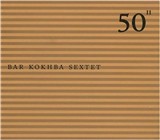 MR: I'll say that musicians who are touring now in Europe should check it out. It's at http://www.musicmobe.org. The intent was to connect touring musicians with peace, environmental, and social justice organizations that are local to where they are touring. If, for example, you want to create a connection with Greenpeace while you're on tour in Holland, you could hook up with them through this if you type in your tour schedule. It gets posted on the website. It's not available to the whole world, but it's available to those organizations that have signed on. Basically, we took it from dating service software; that was the prototype. Except the dates that are being arranged are between touring musicians and those organizations. And like dating, it's a personal nightmare for the artist to have his personal email number out there on the web for everyone to see, use, clog up.
MR: I'll say that musicians who are touring now in Europe should check it out. It's at http://www.musicmobe.org. The intent was to connect touring musicians with peace, environmental, and social justice organizations that are local to where they are touring. If, for example, you want to create a connection with Greenpeace while you're on tour in Holland, you could hook up with them through this if you type in your tour schedule. It gets posted on the website. It's not available to the whole world, but it's available to those organizations that have signed on. Basically, we took it from dating service software; that was the prototype. Except the dates that are being arranged are between touring musicians and those organizations. And like dating, it's a personal nightmare for the artist to have his personal email number out there on the web for everyone to see, use, clog up. The meetings and messages here all take place in the website. I would really encourage artists who are touring to sign up and to use it. We're still in the beginning stages and need to get a lot more artists up there, which will enable us to get a lot more organizations up there. There's no obligation here—posting your tour dates doesn't mean you have to accept a single thing. There are things that could be accepted if you feel it's appropriate. You could allow an organization to set up a table at your gig, you could give them merchandizing space, you could play a tune or speak at a demo.
We came up with this when I was on tour in Europe during the Gulf War and as people who tour in Europe might know, there's been almost complete political breakdown between the U.S. and most of the rest of the world. So it's up to civil society to take over the function of if we want there to be a continued relationship here. In other words, if you want to keep going over there and gigging, you're going to have to convince them you're not a fascist! And if you think that's done automatically because you play a loud guitar, you'd better think again.
They read the papers too; they look at who we collectively elected. They see us collectively say that torture is cool and warrantless searches are just groovy. They hear what's said by our political leaders. They see the effects of global warming there. And they're pissed. I've spent three months a year since 1982 touring in Europe. I have a lot of friends and contacts there and it's where I've done a lot of my work. And I'm giving you the message: there is a breakdown and you can't expect the benefit of the doubt just because you're young or play weird music. Or even not-so-weird music.
 AAJ: You've played with a lot of remarkable musicians. But I'm not going to ask you about John Zorn or Tom Waits, great though they are. I want you to tell me about your experience in one of Chuck Berry's pickup bands.
AAJ: You've played with a lot of remarkable musicians. But I'm not going to ask you about John Zorn or Tom Waits, great though they are. I want you to tell me about your experience in one of Chuck Berry's pickup bands.MR: [Laughing] Okay, good call. I was in a band called the Realtones, and we were called a number of times—I don't know, five, six—to back up Chuck Berry when he came to town. I was very honored and nervous because Chuck Berry has a reputation—you know, he gets a lot of, I guess, not-great pickup bands. He leaves it to the local promoter to set up a pickup band, and usually, promoters being what promoters are, they try to save themselves a little bread [laughing]. We took it very seriously; the horn players learned the horn lines, we learned the parts.
There's a reductionist idea that Chuck Berry is this one riff. But in fact, each part is composed; each tune differs in terms of its guitar part, in terms of feel, in terms of a lot of things. It's all about the specifics. Run 'em together and you've got to take it seriously as composition. Chuck Berry's a great guitarist; he has this thing, this absolute rhythmic authority. His solos are magnetic. You can look out at the audience and as he plays a note, you almost see a ripple go out through them. It's really something to see from the stage. He's a great player who invented a lot of what we do.
Having said that, to be the second guitarist when Chuck Berry's the guitarist can be a difficult role. I suspect that a lot of guitarists who jam with Chuck Berry fall into two mistakes. One is that you need to pay tribute without doing an insulting form of imitation and mimicry. He's Chuck Berry, you're not. He doesn't need to hear you play like him. On the other hand, it's his gig and it would be stupid to be on stage with Chuck Berry without giving a nod to the fact that I, and almost every other electric guitarist who ever played rock, have taken a lot from what he does!
The second thing is that I suspect some people don't get it and say, "well, Chuck Berry, he's great but he probably doesn't practice that much. I'm going to cut him. He does his thing, but I'm going to play really good. That's dumb. Playing faster than Chuck Berry will not mean playing better than Chuck Berry. He'll have every right to be pissed off. So I'm very proud to say that Chuck Berry liked my blues playing. I was very proud that I didn't get kicked off the stage and that he could hear what I was doing. You know, there are certain players—Chuck Berry, Arsenio Rodriguez, Grant Green—who have this absolute rhythmic authority and their every note is just the law. I don't know—they don't teach that at Berklee, that's all I can say.
Selected Discography
John Zorn, Filmworks XVIII (Tzadik, 2006)
Marc Ribot, Spiritual Unity (Pi Recordings, 2005)
John Zorn, Best of Filmworks: 20 Years of Soundtrack Music (Tzadik, 2005)
John Zorn/Electric Masada, At the Mountains of Madness (Tzadik, 2005)
Bar Kokhba Sextet, 50th Birthday Celebration, Vol. 11 (Tzadik, 2005)
Tom Waits, Real Gone (Anti, 2004)
Rob Wasserman, Trilogy (Rounder, 2004)
Wadada Leo Smith, Lake Biwa (Tzadik, 2004)
Medeski Martin & Wood, End of the World Party (Just in Case) (Blue Note, 2004)
Marc Ribot, Soundtracks, Vol. 2 (Tzadik, 2003)
John Zorn, Big Gundown: John Zorn Plays the Music of Ennio Morricone (Tzadik, original release 1984, reissue with bonus material 2000)
John Zorn, Masada Guitars (Tzadik, 2003)
Dave Douglas, Freak In (RCA, 2003)
Marc Ribot, Scelsi Morning (Tzadik, 2003)
Elvis Costello, When I Was Cruel (Universal, 2002)
John Zorn, Filmworks XIII: Invitation to a Suicide (Tzadik, 2002)
David Sylvian, Camphor (Virgin, 2002)
Cyro Baptista, Beat the Donkey (Tzadik, 2002)
Marc Ribot, Saints (Atlantic, 2001)
Sam Phillips, Fan Dance (Nonesuch, 2001)
Marc Ribot, Muy Divertido! (Atlantic, 2000)
James Carter, Layin' in the Cut (Atlantic, 2000)
Medeski Martin & Wood, Dropper (Blue Note, 2000)
Marc Ribot, A Yo I Killed Your God (Tzadik, 1999)
Marty Ehrlich's Dark Wood Ensemble, Sojourn (Tzadik, 1999)
John Lurie, Down By Law/Variety (Intuition, 1999)
David Sylvian, Dead Bees on a Cake (Virgin, 1999)
Marc Ribot, The Prosthetic Cubans (Atlantic, 1998)
John Zorn, The Circle Maker (Tzadik, 1998)
Marc Ribot, Shoe String Symphonettes (Tzadik, 1997)
Mike Patton, Pranzo Oltranzista (Tzadik, 1997)
John Zorn, Filmworks IV: S&M (Tzadik, 1997)
Arto Lindsay, Subtle Body (Bar None, 1996)
Jazz Passengers, Individually Twisted (32 Jazz, 1996)
Madeleine Peyroux, Dreamland (Atlantic, 1996)
Marc Ribot, Don't Blame Me (DIW, 1995)
Rough Assemblage, Construction & Demolition (Avant, 1995)
Marc Ribot, Shrek (Avant, 1994)
David Shea, The Prisoner (Sub Rosa, 1994)
John Zorn, Krystalnacht (Tzadik, 1993)
Medeski Martin & Wood, It's a Jungle in Here (Gramavision, 1993)
T-Bone Burnett, (The Criminal Under My Own Hat (Columbia, 1992)
Elvis Costello, Mighty Like a Rose (Warner Bros., 1991)
David Sanborn, Another Hand (Elektra, 1991)
Marianne Faithful, Blazing Away (Island, 1990)
Stan Ridgeway, Mosquitos (Geffen, 1989)
Elvis Costello, Spike (Warner Bros., 1989)
The Lounge Lizards, Voice of Chunk (Agharta, 1989)
Tom Waits, Big Time (Island, 1988)
The Lounge Lizards, Big Heart: Live Tokyo (Antilles, 1986)
Related Article: A Fireside Chat with Marc Ribot (Interview, 2004)
Photo Credits:
Top Photo: Chico De Luigi
Second Photo: Juan-Carlos Hernández
Third Photo: Scott Chernis
Bottom Photo: Luca Buti
Tags
PREVIOUS / NEXT
Marc Ribot Concerts
Support All About Jazz
 All About Jazz has been a pillar of jazz since 1995, championing it as an art form and, more importantly, supporting the musicians who make it. Our enduring commitment has made "AAJ" one of the most culturally important websites of its kind, read by hundreds of thousands of fans, musicians and industry figures every month.
All About Jazz has been a pillar of jazz since 1995, championing it as an art form and, more importantly, supporting the musicians who make it. Our enduring commitment has made "AAJ" one of the most culturally important websites of its kind, read by hundreds of thousands of fans, musicians and industry figures every month.

